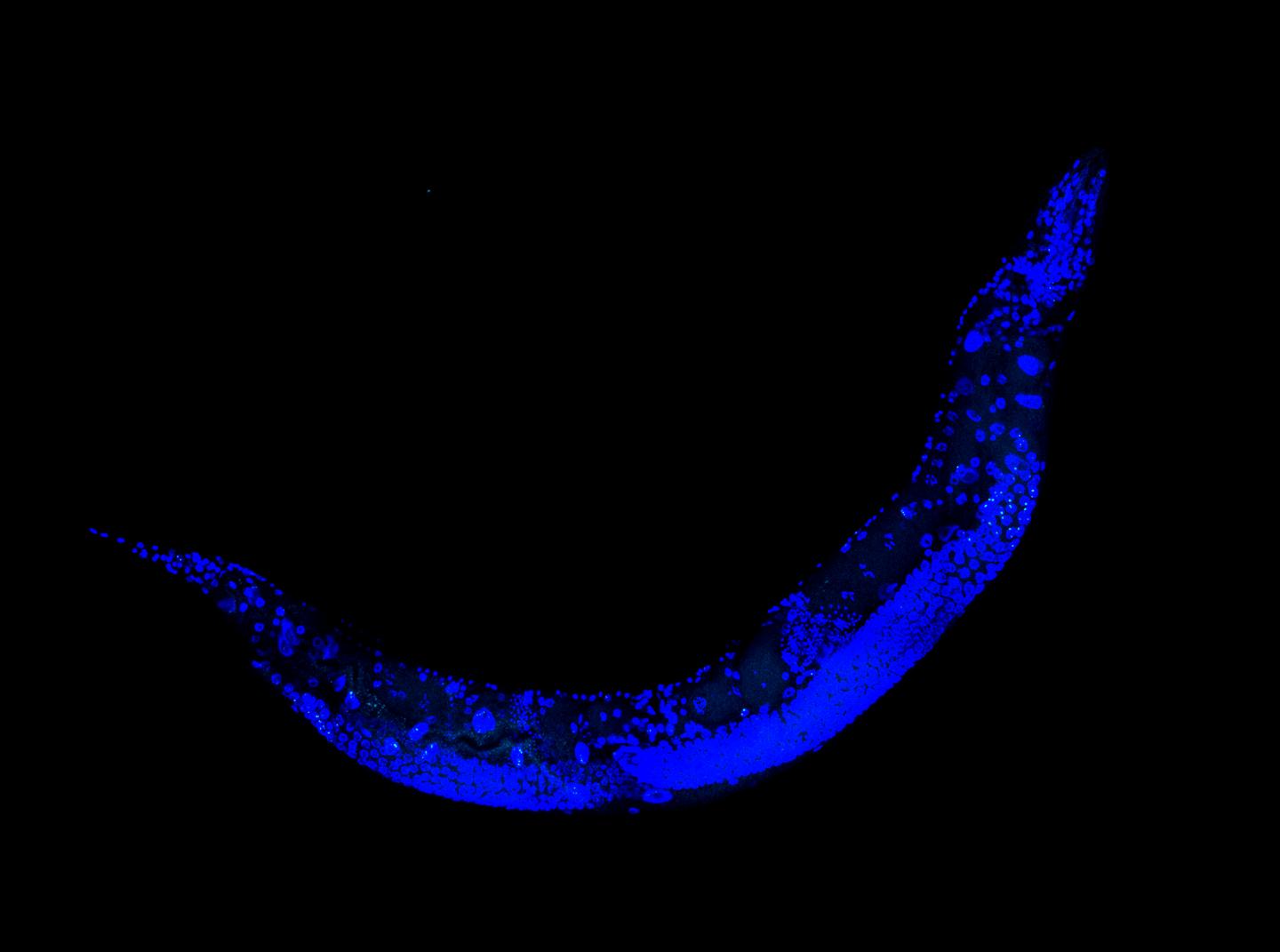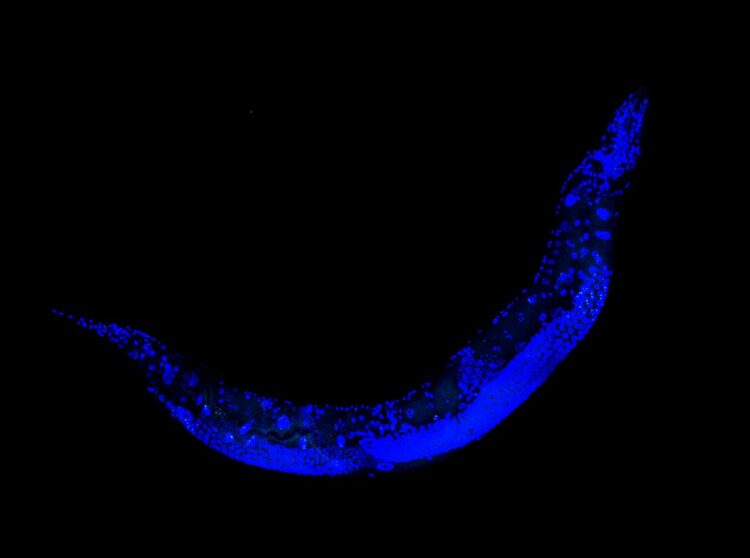New study shows animals pass signals to future offspring to warn them of danger

Credit: Catherine Dvorak, University of Iowa
Talk about motherly instincts: Biologists at the University of Iowa have learned that female roundworms can alert their future offspring of dangers they will encounter when born, and the mothers pass on these warnings even before the offspring have been conceived.
The study shows that a mother roundworm releases a chemical called serotonin when she senses danger, such as a change in temperature, which can be harmful or even fatal to the animal. The serotonin travels from the mother’s central nervous system to her unfertilized eggs, where the warning is stored, so to speak, in the egg cells and then passed to offspring after conception.
In experiments, the researchers discovered that embryos from mothers who passed along the serotonin danger signal had higher birth rate and survival success than female roundworms who had the serotonin signaling removed.
“Our study shows the mother’s sensory response to danger actually protects the progeny,” says Veena Prahlad, associate professor in the Department of Biology and corresponding author on the study, published in the journal eLife. “Put more simply, she seems to be protecting her potential babies before she protects her own self.”
There are hints that this communication channel exists in mammals, but researchers know little about how it happens. So Prahlad and her team decided to study it in detail in roundworms. The researchers showed that the release of serotonin by maternal neurons triggers gene expression in the gonad that protects the immature egg, ensuring its survival after fertilization and even making roundworm larvae more resilient to stressors.
The team confirmed these findings by comparing birth and survival rates of roundworm larvae that received the serotonin signal to those from whom the serotonin signaling enzyme had been removed. The results showed roundworm larvae that received maternal serotonin had a 94% birth success and survival when exposed to higher temperatures compared to a 50% birth success and survival rate in higher temperatures for roundworm offspring with the serotonin signaling enzyme removed.
“So, stress in the mother is not always bad,” Prahlad says. “In this case, it actually prepares the offspring for the future.”
“The most exciting part of our study was the transgenerational effect,” says Srijit Das, the study’s first author and a postdoctoral researcher in biology. “When the mother experiences stress, the effects are communicated to the eggs such that the offspring that arise from these eggs have a higher tolerance for the same stressor.”
The researchers took their findings a step further by testing the serotonin signaling mechanism with cells from a mammal. In those experiments, collaborating with Josh Weiner, professor of biology at Iowa and a co-author on the study, the researchers dosed mice neurons with serotonin. They observed the serotonin caused the same defense mechanism as in the roundworm eggs and common to all plants and animals known as the heat shock response.
This mechanism–set off by a protein called the HSF1 transcription factor, and which is activated by changes in temperature, salinity, and other stressors–triggers the production of a class of proteins called molecular chaperones, which seek out and repair or get rid of damaged proteins that have become toxic to the cell.
That means that, pending more study, serotonin may become a treatment option for activating cellular defenses against neurodegenerative disease associated with aging, including dementia, Alzheimer’s disease, and Parkinson’s disease.
“It took a strange journey, but it was very gratifying to see that this is something that can happen in mammalian neurons,” Prahlad says. “You increase serotonin, and you can cause neurons to turn on HSF1 and increase molecular chaperones. And we know if we can increase molecular chaperones, selectively in dementias, we get a decrease in a lot of the symptoms, in toxicity and in neuronal death and dysfunction.”
Prahlad plans to test whether increasing serotonin in mice would prevent them from getting dementia.
“The serotonin system is eminently druggable. It’s straightforward to increase serotonin availability. You would just need to figure out dosages and frequency, but that would be our next step.”
###
Contributing authors include Felicia Ooi, a former graduate student in the Prahlad lab and now a postdoctoral researcher at the University of California-San Francisco; Johnny Cruz Corchado, a postdoctoral researcher at Iowa; and Leah Fuller, a research associate at Iowa.
The National Institute on Aging, a branch of the National Institutes of Health, and the Aging Mind and Brian Initiative at Iowa funded the research.
Media Contact
Richard Lewis
[email protected]
Original Source
https:/
Related Journal Article
http://dx.





